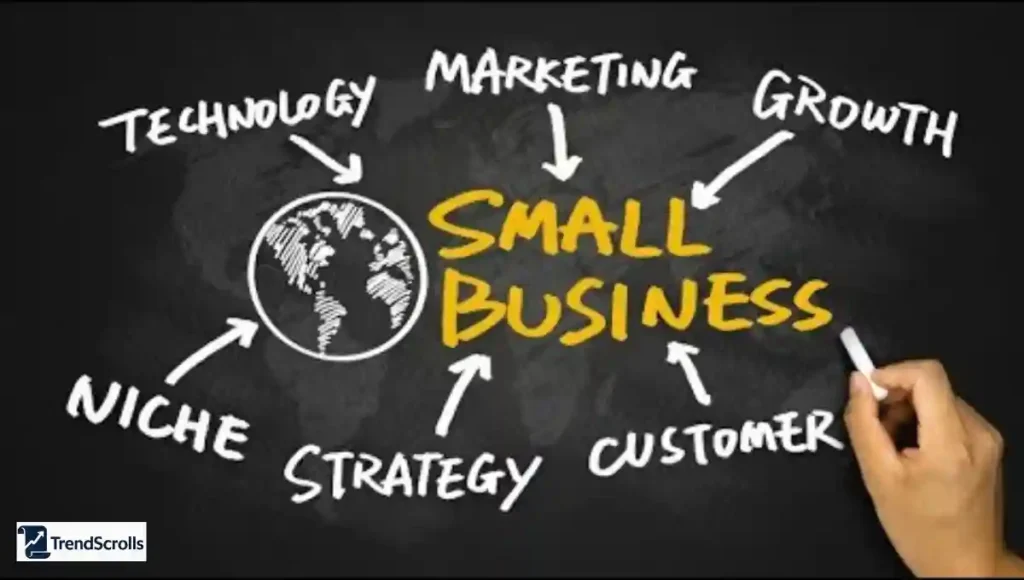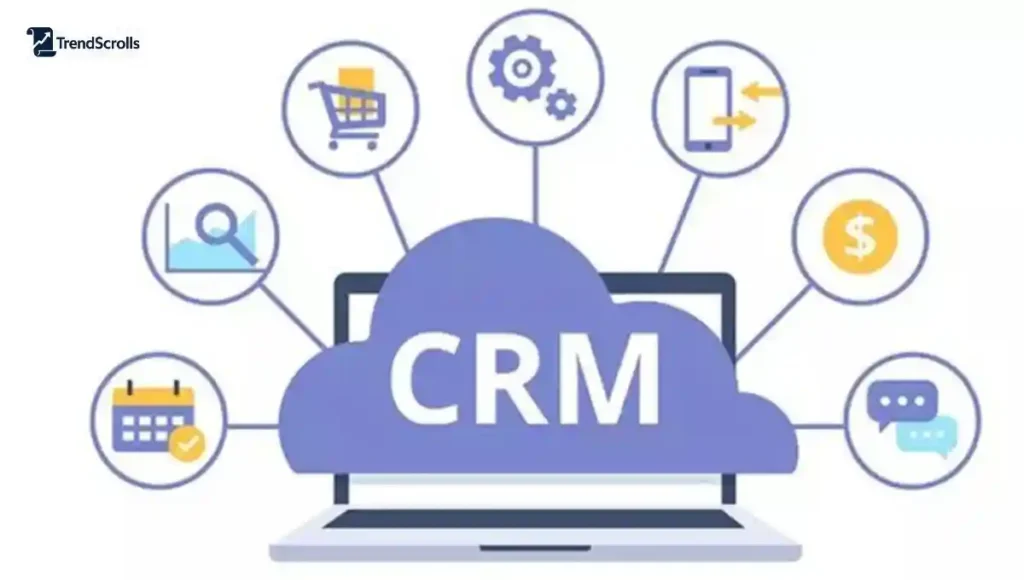In 2025, growing a business in the U.S. means working smarter, not harder. Created this guide to the 10 Best Online Tools for Small Business Owners (2025)—a must-read for anyone who wants to streamline daily operations, increase profits, and stay ahead. Whether you’re just getting started or already running a company, the 10 Best Online Tools for Small Business Owners (2025) will help you save time, reduce stress, and unlock your full potential.
1. Why Marketing Matters for Small Businesses in 2025

Marketing in 2025 isn’t just about selling — it’s about storytelling, visibility, and trust. In the evolving U.S. market, small businesses face tough competition from both local startups and global brands. To stay ahead, scaling up your small business requires a solid online presence and digital marketing plan. That’s where online tools for small business owners play a vital role. They help you connect, engage, and convert your audience with precision.
Using the right tools ensures you deliver a better customer experience, manage campaigns efficiently, and gain insights and analytics that shape future decisions. Whether it’s tracking sales or scheduling social media posts, the power of cloud-based business software cannot be ignored. It’s your pathway to building trust and increasing brand awareness across the USA.
2. Top Online Marketing Channels for Small Businesses
Small business owners in the U.S. rely on a mix of digital platforms to reach their audience. Social media sites like Facebook and Instagram are great for storytelling and promotions. SEO tools help optimize content and increase visibility on search engines, while email marketing software lets you nurture leads and build relationships. Influencer marketing is also growing fast in 2025, especially among younger audiences.
These channels work best when paired with productivity tools for teams that streamline efforts and save time. With the right mix of strategies, even small teams can empower their employees to handle complex marketing campaigns with ease. This digital era demands smart choices, and online tools make those choices easier.
3. How Business Tools Empower Small Business Owners

Running a business without tools today is like driving without a map. The right software helps you manage tasks, serve customers, and grow smoothly. It reduces manual work, prevents errors, and improves planning. From tracking payments to scheduling meetings, every business task becomes faster and smarter.
When you use business software for small businesses, your team becomes more productive. They also allow for team performance monitoring, so you always know who’s doing what.
4. Must-Have Features in Small Business Tools
The best online tools share common features. They are simple to use, offer multiple app integrations, and support mobile use. You don’t need to be tech-savvy to use them, which is perfect for small teams. Also, affordable business tools help you stay within budget without losing quality.
Support also matters. Good tools offer live chat or email support when you need help.. Cloud-based solution features allow access from anywhere, making remote work seamless. These features make sure you’re always ready to work smarter.
5. 16 Best Tools for Small Businesses in 2025
Here’s a curated list of tools that help in different parts of business operations. These include CRMs, accounting platforms, task managers, and communication apps. Whether you’re handling HR, marketing, or sales, there’s a tool built for your needs.
| Tool Name | Purpose | Notable Feature |
| QuickBooks | Accounting | Accurate financial information |
| HubSpot CRM | Sales & Customer Tracking | CRM and performance tracking |
| Trello | Project Management | Drag & Drop Boards |
| Mailchimp | Email Marketing | Automation Workflows |
| Canva | Branding & Design | Templates for All Devices |
| 1Password | Security & Privacy | Team Access Control |
| ClickUp | Task Management | All-in-One Workspace |
| Zoom | Video Communication | HD Meetings |
| LegalZoom | Business Legal Services | LLC Formation |
| Google Analytics | Website Analytics | Insights and analytics |
| Slack | Team Messaging | App Integrations |
| Woorise | Lead Generation | Landing Pages & Forms |
| FreshBooks | Billing & Invoicing | Time Tracking |
| Canva | Graphic Design | Social Media Templates |
| Lattice | HR & Performance Reviews | Performance appraisals |
| Notion | Notes & Collaboration | Custom Pages |
6. CRM Software: Why It’s Essential for Growth

Without a good CRM, you can’t track your customers well. CRM software helps you manage leads, follow up on sales, and understand your clients.
CRM software for small businesses is the backbone of service and sales. It improves customer experience and allows teams to access everything in one place. Your team can deliver fast and personal service, all thanks to smart software.
7. 10 Best Small Business CRM Software of 2025
Choosing a CRM depends on your needs. Some tools are better for small teams, others for sales-driven companies. Platforms like Zoho, Salesmate, and Freshsales are all designed to give you feedback and assessment tools. These CRMs help in storing client info, creating tasks, and sending emails.
Here’s a table of the top options:
| CRM Software | Best For | Key Feature |
| HubSpot CRM | Beginners & Sales Teams | Free Plan + Automation |
| Zoho CRM | Small & Growing Teams | Custom Pipelines |
| Pipedrive | Email + Sales Tracking | Activity Monitoring |
| Agile CRM | Free CRM with Features | Contact Management |
| Freshsales | AI-Powered CRM | Smart Follow-ups |
| monday.com | CRM & Task Management | Visual Dashboards |
| Salesforce | Large Data Teams | High-End Integrations |
| Insightly | Project-Based Sales Teams | Custom Fields |
| Nimble | Social CRM | Social Media Sync |
| Apptivo | Documents + Contacts | Business App Suite |
8. Task and Project Management Tools That Work
A good project management tool helps your team stay on track. Tools like Trello, ClickUp, and Asana offer boards, timelines, and task lists. These features help assign work, set deadlines, and monitor progress. They also support comments and file sharing.
Such performance management system tools provide structure to your team’s work. They’re simple yet powerful, perfect for a small business. They also give employee engagement tools that make collaboration fun and focused.
9. Financial and Accounting Tools You Can Rely On
Handling finances with pen and paper won’t cut it in 2025. Platforms like QuickBooks and FreshBooks allow you to send invoices, track income, and calculate expenses easily. These tools support your business’s payroll and HR software needs, too.
What’s better, they help with accurate financial information that you can use during audits or tax season. This creates less stress and more confidence. They’re built to keep your books balanced, even on busy days.
10. Best Tools for Social Media and Email Marketing
Marketing is about staying visible. Tools like Mailchimp and SocialPilot help small businesses schedule posts, send newsletters, and track open rates.
With small business growth tools, you can do it all with limited effort. They improve reach, help maintain customer loyalty, and save time every day.
11. Customer Communication and Support Tools

Fast replies build trust. Support tools like Zendesk, LiveChat, and ProProfs Chat let you handle queries quickly. Customers expect answers now, not tomorrow.
These customer service tools are simple to use and packed with features like ticket tracking, saved replies, and reporting. You’ll serve your clients better, and they’ll keep coming back.
12. Password & Privacy Protection Tools for Small Teams
Security is vital. Tools like 1Password or LastPass store your passwords, control team access, and secure sensitive files.
Cloud-based business software in this category is affordable, simple, and strong. These tools give peace of mind, especially when your team works from different places.
13. Tools That Support Website Building & Branding
Wix, Squarespace, and WordPress help you build professional websites fast. No coding is needed.
Pair these with branding tools like Canva for logos and designs. Together, they form a solid online identity for your business. This strengthens trust and boosts online presence.
14. Best Free Tools Every Small Business Should Try
Start small, grow smart. Tools like Google Drive, Canva, Slack, and Notion offer great value for free. They help with everything from storage to design and teamwork.
If you’re on a budget, these are limited budget solutions that still deliver quality. You won’t feel the pinch, but you’ll still get results.
15. Legal & Business Formation Tools to Protect Your Brand
Setting up your business right is important. LegalZoom helps with registration, contracts, and licenses. These tools save time and reduce legal risk.
You can form an LLC, get legal advice, or renew licenses from one dashboard. It’s all about making business ownership easier.
16. What to Look For in a Small Business Marketing Service
Many small businesses turn to agencies for extra help. A good marketing service should offer personalized plans, regular updates, and success reports. Look for services that use data-driven decision-making to grow your business.
Also, choose firms that understand your goals. Whether it’s organizational development or running local ads, they should align with your vision.
17. Promote Your Business with Direct Mail Marketing
Though digital is king, direct mail still works. Sending postcards, flyers, or coupons can drive foot traffic to your store. It adds a personal touch that emails can’t match.
Platforms like Vistaprint make printing and mailing easy. Combine them with employee engagement surveys to target the right audience locally.
18. How To Choose the Right Tool for Your Business Needs
Every business is different, so take time to find what suits yours. Start by listing your pain points. Then look for tools that solve those exact problems.
Use feedback and assessment systems to measure how well new tools work. If they improve operations, keep them. If not, move on.
19. Integrate Tools for Maximum Productivity
Don’t use tools that don’t talk to each other. Integration keeps data flowing smoothly. When your email tool connects to your CRM, and your accounting tool talks to your task manager, things run better.
This helps avoid double entry, missed tasks, and lost files. Good integrations lead to real gains in time and money.
20. Automate Repetitive Tasks to Save Time
Use tools that offer automation. Repeating the same tasks daily eats up time. Automation lets your software handle them while you focus on growth.
Use platforms like Zapier to connect different tools and automate steps like sending emails or tracking tasks.
21. Use Analytics to Make Better Decisions
Smart business owners rely on facts, not guesses. Tools like Google Analytics and built-in dashboards show what’s working and what’s not.
They reveal trends, traffic sources, and customer behavior. This helps you plan smarter and grow faster.
22. Stay on Budget: Affordable Tools for Startups
Running a startup in the USA means watching every dollar. Choose tools with free trials, freemium models, or all-in-one solutions.
23. Scale Your Business with the Right Tools
As your company grows, your tools should grow with you. Look for scalable options with upgrade paths and user expansion.
Scaling up your small business becomes easier with systems that evolve. Never stick with a tool that limits you.
24. Training Teams on New Business Tools
Training matters. Without it, new tools cause more confusion than help. Invest in platforms with tutorials, help centers, or in-app guides.
You can also assign a “tech guide” in your team to help others adapt. This makes adoption smooth and fast.
25. Keep Your Tech Stack Updated
Old software causes problems. It can crash, slow down, or expose you to risks. Update your tools regularly to avoid issues.
Do a yearly tech audit. Remove what you don’t need. Upgrade what’s outdated.
26. Business Tools for HR and Team Engagement
Keeping your team happy means better performance. Tools like Lattice and BambooHR help with reviews, surveys, and benefits tracking.
These boost morale and keep everyone aligned. That’s essential for long-term success.
27. How Small Businesses Can Use SMS Marketing in 2025
SMS still works. It reaches people fast. Tools like Twilio let you send texts for promos, updates, or reminders.
Just don’t spam. Use it for real value. Short messages often lead to quick responses.
28. Register, Run, and Protect Your Business Legally
Legal tools help you stay compliant. From tax ID registration to annual filings, they handle paperwork for you.
Platforms like LegalZoom let you manage all legal work in one place, saving time and reducing risks.
29. Final Thoughts: Build Smarter, Grow Faster in 2025
Success in 2025 means using tools that save time, reduce stress, and help you grow. The right tools make you agile, efficient, and focused.
With a smart setup, you can enhance customer experience, empower your employees, and build a competitive edge for a small business that lasts.
FAQs:
1. What are the 10 best online tools for small business owners in 2025?
The 10 best online tools for small business owners (2025) include QuickBooks, HubSpot, Trello, Canva, Mailchimp, Zoom, LegalZoom, ClickUp, Google Analytics, and Slack.
2. Which CRM software is best for small businesses in the U.S.?
Top CRM software for small businesses in the U.S. includes HubSpot, Zoho CRM, and Pipedrive—great for sales, automation, and customer experience improvement.
3. What is the most affordable small business tool for startups?
Tools like Google Workspace and Canva are great, limited budget solutions with powerful features at no or low cost.
4. How do I choose the right online tool for my small business?
Pick tools that solve your specific problems, are easy to use, and offer real-time feedback tools and cloud-based business software access.
5. Do small businesses need performance tracking tools?
Yes, using a performance management system helps track goals, give feedback, and empower your employees to perform better.
6. Can I run payroll and HR using small business software?
Absolutely. Tools like Gusto and BambooHR handle payroll and HR software tasks with ease and save hours of manual work.
7. Do these tools work well for remote teams?
Yes, most are cloud-based solutions, perfect for remote work, team collaboration, and managing from anywhere.
8. Are there any tools that help improve branding and design?
Yes, Canva and Adobe Express offer easy design features to build strong branding with employee engagement tools for your team.



